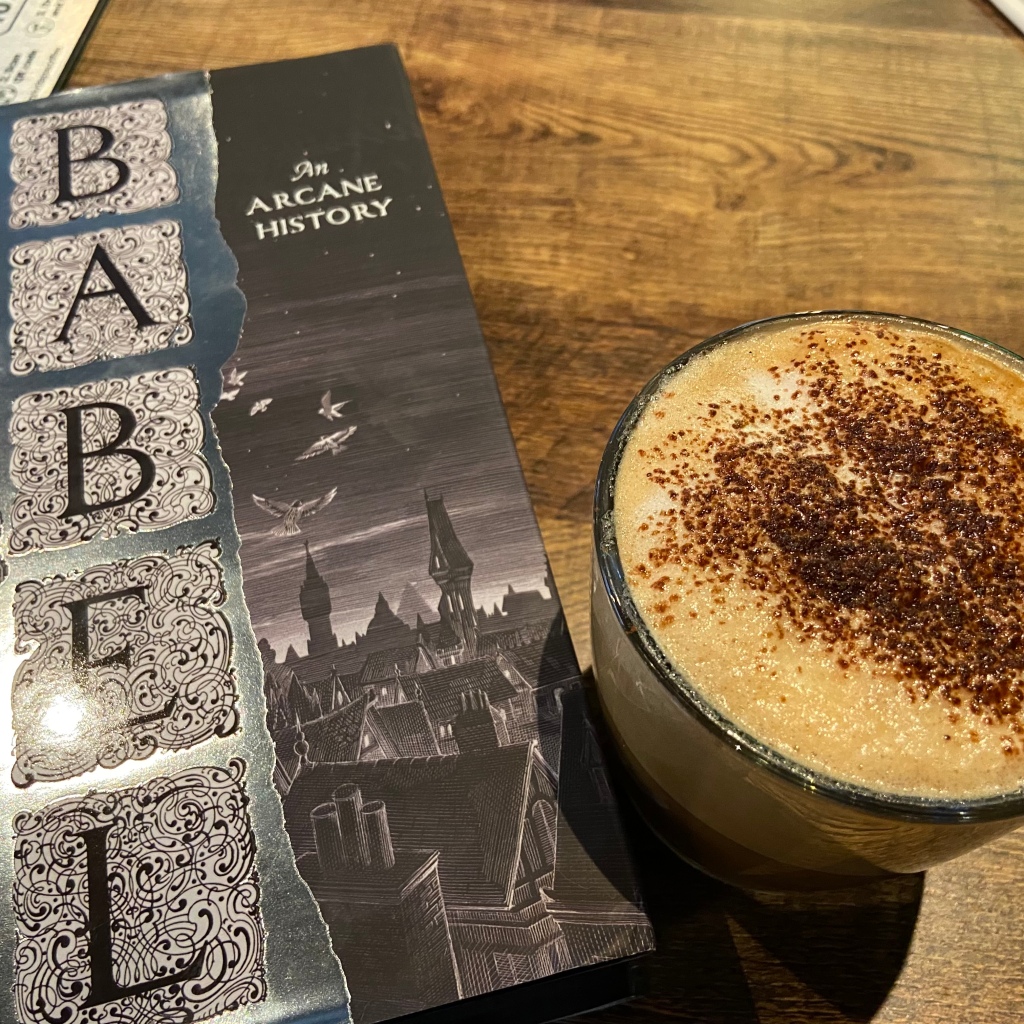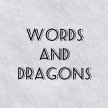
I cannot accurately translate the impact of this book. Something would be lost in translation. Just like you have to read the original text to understand it fully, you need to read Babel to truly capture R. F. Kuang’s message. This review is just a merely attempt to translate how impressionable this book is.
Babel follows Robin as he is removed from his homeland and gifted the opportunity to study translation at Oxford University by his father (although he is reluctant to define himself as such) Professor Lovell. My contradictory use of the words ‘removed’ and ‘gifted’, highlights the contradiction or complexity at the heart of the novel. Is Robin’s education a privilege or abuse? This is for Robin to decide once he gets introduced to the Hermes society a rebellious group intent on slowing down England’s colonial project by limited how much they can translate and steal from other cultures.
The magic in this novel is incredibly subtle. Only people who think and live in multiple languages can use silver because it requires you to masterfully translate a word so that it purposely excludes one of its meanings. The excluded meaning is then created as a spell. This might sound convoluted, but Kuang weaves it into her novel with such grace that it becomes an unquestioned element of the world’s reality. With Babel, Kuang has proven that she is the master of high fantasy and historical fantasy.
Previously, Kuang has only published The Poppy War trilogy (a grimdark epic fantasy based on 20th-Century Chinese history). This series was a phenomenal triumph of fantasy writing. From a critical perspective, even single instalment was awarded the Hugo Award. On a more personal and subjective note, this was the first adult fantasy series that fully drew me into the genre. I picked up The Poppy War on a whim and all of a sudden I was so emmersed in Rin’s journey on the road of self-destruction and personal vendettas that I had finished the entire trilogy in no time at all. I found it as unputdownable as all my favourite cheesy YA novels (don’t judge me but back in the day Sarah J. Mass was my shit), but actually good. Unlike a SJM novel, I would (and have) happily read Kuang’s writing in public. Kuang is a rare writer who is can successfully juggle every element of fantasy writing. Her novels are at once magical action-packed adventures and intense character-focused commentaries. This is still the case when she utilises a very different setting in Babel.
Similar to within The Poppy War, Kuang uses her fantastical elements to reflect events from history. In this case, instead of using fantasy to stand for reality, she entwines magic and reality so that reality is infused with magic and magic is infused with reality. Not only is the novel a Victorian novel that depicts this period’s colonialism, but it is also a fantasy where magic symbolises the colonial project. Consequently, Babel is one of the most intelligent novels I have ever read.
I read this book slowly and carefully to ensure I picked up on every single word and double meaning. Normally I hate footnotes in a novel. I think this might be the defining reason that I struggled to connect to Mark Z. Danielwski’s House of Leaves even though a complex ghost story based on Jaques Derrida appeals to me immensely (my masters dissertation focused on both this genre and this theorist). Yet here I was devouring the footnotes for extra definitions and historical references. They all added context to the narrative without disrupting it.
While Kuang does not engage with Derrida directly, I couldn’t help thinking about his theory of differance while reading Babel. The similarity between silver and differance struck out to me. Silver relies on a word carrying what is excluded from it and Derrida famously suggests that every word works because you relate it to what it is not. This has large implications for social groups. It also applies to how white Victorians are constantly defined by the colonial people they try to other. Not only does Kuang explore differences in meaning, she uses it to reflect differences of people. Within Babel people are the languages they speak. Because her characters are defined by the languages they master, Kuang effortlessly mirrors translation and colonialism. Victorian society does not just claim ownership of the languages they translate, they also control the people who speak them. Like silver, her characters become objects used by imperialism to support their project. This reveals how colonialism has never ended. I was confronted by the racism I am implicit in as a white person living in Britain. I cannot sit here and deny that colonialism has not supported me, when I am sitting here drinking Indian coffee and typing on a device that was made in China.
While I have now started to analyse the novel as if I’m sat in a seminar room, you do not have to enjoy education to take deeper meaning out of the novel. The friendships at the core of the novel will enrapture every reader. So far, my review has just focused on Robin, and this is my own self-confessed flaw. You cannot do Babel justice without discussing his band of confidants. Babel has rightfully been compared to Dark Academia novels. This was what appealed to me most about the novel. I unashamedly love the pretentiousness of a litany fiction novel set at a university involving death and murder (it literally combines all of my favourite things). The Babelers that Kuang’s narrative oscillates around are easily comparable to the the classics students in Donna Tartt’s The Secret History. But then again every intense and toxic friendship can be compared to this groundbreaking novel.
In Babel, Robin studies alongside the three other university outcasts in his year. He immediately forms a Ron and Harry like friendship with Ramy. And their duo later joins with two girls (Letty and Victoire) to form a beautiful quartet. It’s this dynamic that pulls you through each of the novels five sections. While Kuang (speaking at the novel’s launch event in Liverpool) stated that her five-act structure was designed to reflect 19th-Century Buildingsromans like Charles Dickens Oliver, her five act structure particularly charts this dynamic from origin to its untimely end. Fans of Kuang’s other work should not be surprised that this friendship is not smooth sailing. It is truly the quartet’s relationship that we watch come of age.
This does not mean that Robin does not go through a transformation throughout the novel. The young lonely boy we meet at the beginning is nothing like the self-destructive person he becomes. In fact, it is insane to think that they are the same person. How Kuang managed to depict such a journey in a 550 page novel is beyond me. What Kuang does best is writing a protagonist who looses their innocence due to the harsh reality of the world they live in and the people they encounter. Robin, like Rin, becomes a different person because the relationships in his life force him to adapt.
Kuang does not shy away from the harsh realities of the world, and this is balanced in both Robin’s journey and the novel’s ending. The novel, unsurprisingly has a grim ending. I will not go into details, but you will cry when reading this book. You will feel frustrated. You will feel agony. You will hate how realistic in it.
Yet all hope is not lost. Kuang balances devastation with hope. Babel somewhat has two endings (this will only make sense when you have read the novel). One details pain and one is about overcoming pain. This is the ending that really struck me. This second ending is about the possibility. So, I will end like Kuang does, with a sense of wonder at what the future might hold (specifically the future of her writing career).

